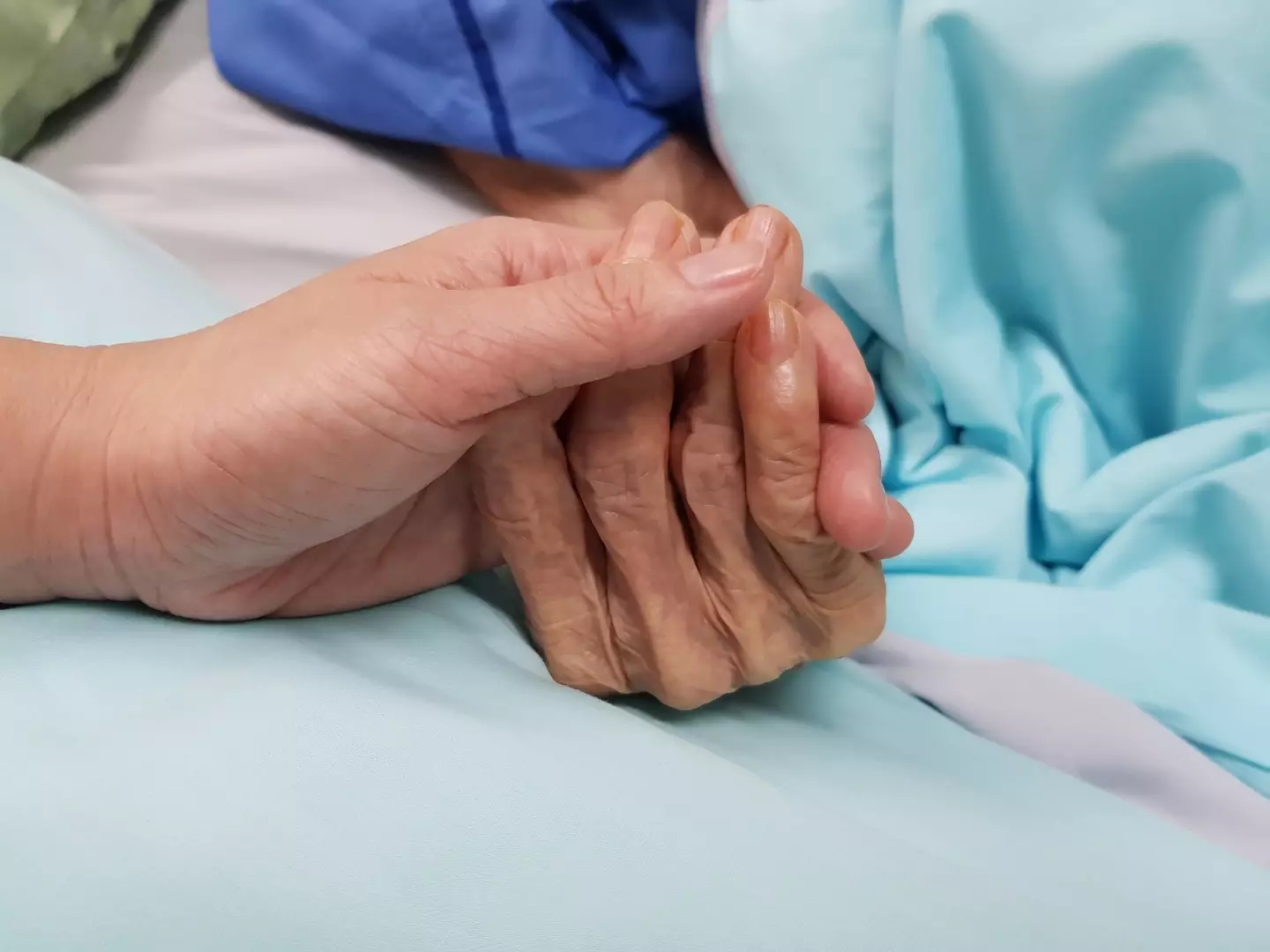
It’s something we’ve all wondered about – when do you know that your time is up and what does it actually look like?
When a person is close to passing away, there are usually several indicators that they could mean they are coming to the end, with hospice nurse Julie McFadden previously revealing that the body actually goes through four stages before passing away.
She also said certain signs that death is near usually happen around the six month mark for those who go on to die a natural death.
It’s a scary thought, of course. But experts like Julie want to ‘alleviate the fear and stigma around death’ by knowing what exactly can go down, and in a bid to be prepared, it can be beneficial to know what to look out for.

There are several signs that somebody is close to passing away (Getty Stock Photo)
Lack of appetite
A person usually becomes less active as the end draws closer, and as a result, their body does not need as much energy.
This could lead them to stopping eating or drinking as much as usual and they may completely stop eating, which can usually happen one to two months before passing away, according to VITAS Healthcare.
Medical News Today advises keeping the person’s lips moistened with balm to ensure they’re not uncomfortable in their final days or hours.
Needing more sleep
A person may spend less time awake in the time before they die, and it is advised to let them sleep while ensuring they’re comfortable, the publication says.
While the other senses diminish overtime, you can still hear what people are saying and the environment around you before dying, so VITAs also recommends respecting the person’s solitude, while communicating with them openly.
A change in toilet habits
When somebody is eating and drinking less – which is common in a person’s final days – their bowel movements may reduce and become less frequent.
A person can also lose control of their bowel movements, and it is advised to seek medical help if this is the case.

Death is sadly a part of life (Getty stock image)
Weakening muscles
Muscles may become weak in a person’s final hours, which means they may be unable to carry out simple tasks or do things for themselves, such as getting out of bed or going to the toilet.
Changing vital signs
In a person’s final days or moments, their vital signs may significantly change. This includes; blood pressure dropping, breathing changes, faster or more irregular heartbeat, difficulty detecting a pulse.
Body temperature
Circulations reduces in the days before a person passes away, as that blood is focused on their internal organs. This leads to decreased blood flow in the hands, feet or legs.
Reduced circulation can leave a person’s skin cold to touch, and it may also look pale or mottled with blue and purple patches.

Increased sleeping is one of the signs that somebody is approaching death (Getty Stock Photo)
Breathing changes
A person’s breathing may significantly change during their final moments. It may change speed, or they may make grunting, gurgling, or rattling noises when breathing.
It’s advised not to worry, even if you do notice these symptoms.
Medical News Today advises finding a position which enables the person to breathe easier, or speak to a doctor if you are concerned.
Experiencing pain
Sadly, a person’s pain levels may not be able to be managed with treatment as they get closer to dying. It is important to be prepared to see a pained expression or noise, even though it is never easy to hear or see.
Less sociable
When energy levels reduce, a person may not be able to be as social as they once were. A person close to dying may withdraw from certain situations, but it is important not to be offended by this and instead, arrange visits to see the person which they approve of.

It’s important to ensure a person is as comfortable as possible in their final moments (Getty Stock Image)
Confusion
Towards the end, a person may become confused at times. They can lose track of what is happening around them, but it is important to keep talking with them and explain what is happening, as well as introducing each visitor.
Hallucinations
Hallucinations or distorted visions are not uncommon in a person’s final moments, and as the Katherine House Hospice outlines, some dying people may even talk to or see things that are not present.
It may be concerning to witness, but it is helpful not to add to the person’s distress and to simply remind them of what is happening and who is around, while remaining calm.
If you have experienced a bereavement and would like to speak with someone in confidence, contact Cruse Bereavement Care via their national helpline on 0808 808 1677.


